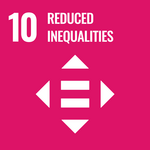Assoz. FH-Prof. Mag. Dr. Patrick Schuchter, MPH
Senior Researcher
patrick.schuchter@hcw.ac.at
+43 1 606 68 77-4287
Project duration: 15.12.2022 - 14.09.2026
The goal of hospice work and palliative care is to improve the quality of life for dying individuals as well as for those who accompany and care for them. From the very beginning, it was clear that "hospice" means more than just a building—it represents an attitude. Hospice culture manifests as a culture of care in all places where people age, die, grieve, and support one another. This also involves the task of breaking the taboo surrounding death and understanding it as a part of everyday life.
At the same time, this means confronting the existential questions of life—the "ultimate questions"—which, while they remain enduring questions throughout life, often become particularly intense and conscious in "boundary situations" (Karl Jaspers).
Philosophy is not merely an academic discipline but is deeply rooted in everyday life. For the movement of Philosophical Practice, engaging with such questions forms the core of philosophical activity, which can be practiced by anyone. Interestingly, existential questions in palliative contexts have so far been addressed almost entirely without reference to philosophical traditions and methods.
This project, therefore, investigates the contribution that Philosophical Practice can make to the development of a hospice and palliative care culture. The project consists of various sub-studies, including a comprehensive literature review and an interview study with 29 philosophical practitioners about their experiences with the topics of dying, death, and grief. Following this data collection phase, the participatory research phase includes a group discussion study, an individual interview study, and practical-experimental interventions in collaboration with a mobile palliative care team and as part of a Caring Community process in a German municipality. Events and publications aimed at both the academic discourse and practitioners, as well as a broader public audience, will consolidate and disseminate the findings in diverse ways.
The results open up new pathways for the sustainable integration of Philosophical Practice into palliative care, Caring Communities, and society as a whole. They also demonstrate how questions and life themes related to care and caregiving can be discussed in everyday social contexts.


